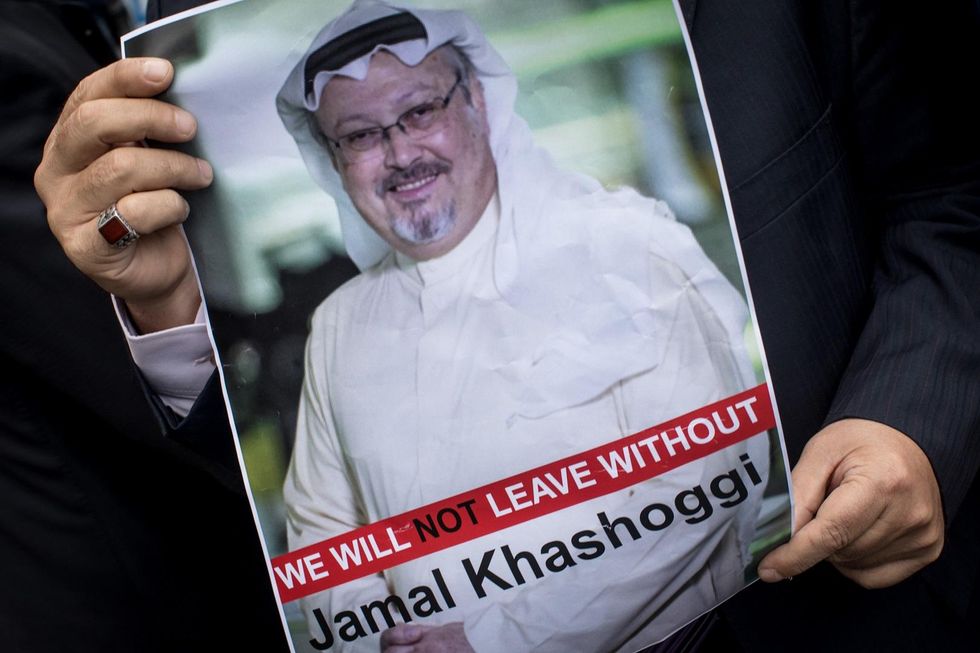
A man holds a poster of Saudi journalist Jamal Khashoggi during a protest organized by members of the Turkish-Arabic Media Association at the entrance to Saudi Arabia's consulate on October 8, 2018 in Istanbul, Turkey. (Chris McGrath/Getty Images)

U.S. intelligence intercepts of Saudi officials suggested that Saudi Crown Prince Mohammed bin Salman was behind the disappearance of Washington Post columnist Jamal Khashoggi and that Khashoggi may have been killed during a botched kidnapping attempt.
Khashoggi vanished after entering the Saudi consulate in Istanbul, Turkey, on Oct. 2. He had entered the consulate in order to finalize his divorce so that he could marry his fiancée, whom he had left waiting outside the building. CCTV footage shows him entering the consulate but never leaving it.
According to the Washington Post, senior Saudi officials had called Khashoggi in the months before his disappearance, offering him protection if he returned to the country. Fully aware that the Saudi government did not take kindly to its critics, Khashoggi turned down this offer. Khaled Saffuri, an Arab American political activist, told the Post that Khashoggi had discussed these offers with them and said that he would never take an offer like this seriously. “He said: ‘Are you kidding? I don’t trust them one bit,’ ” Saffuri said.
While the crown prince has been praised for modernizing some aspects of Saudi life, he has also been ruthless against his critics or anyone standing in the way of his rise to power.
Turkish officials believe that Khashoggi was murdered inside the consulate, but U.S. officials observed that the way the operation was conducted looked more like a kidnapping. This has led to “speculation by officials and analysts in multiple countries,” according to the Post, that the original plan may have been to capture Khashoggi and take him back to Saudi Arabia, and that the journalist had been killed when that plan somehow went south.
While he refused to comment on the intercepts, deputy State Department spokesman Robert Palladino told reporters that he could “say definitively the United States had no advance knowledge of [Khashoggi’s] disappearance.”
President Donald Trump has called Khashoggi's disappearance “a very serious situation” and said, “I think we’ll get to the bottom of it.” On Wednesday, a bipartisan group of 22 senators led by Sens. Bob Corker (R-Tenn.), Bob Menendez (D-N.J.), Lindsey Graham (R-S.C.), and Patrick Leahy (D-Vt.) sent a letter to Trump demanding that the U.S. impose sanctions under the Global Magnitsky Human Rights Accountability Act on any "foreign person responsible for such a violation related to Mr. Khashoggi."
The Global Magnitsky Human Rights Accountability Act requires the president to determine whether or not to impose sanctions on non-U.S. citizens guilty of human rights violations, within 120 days after receiving a letter from the Senate Foreign Relations Committee. Every member of the committee signed this letter except for Sen. Rand Paul (R-Ky.). Graham and Leahy are not members of this committee, but signed in their role as leaders of the Senate Appropriations subcommittee on state and foreign operations.